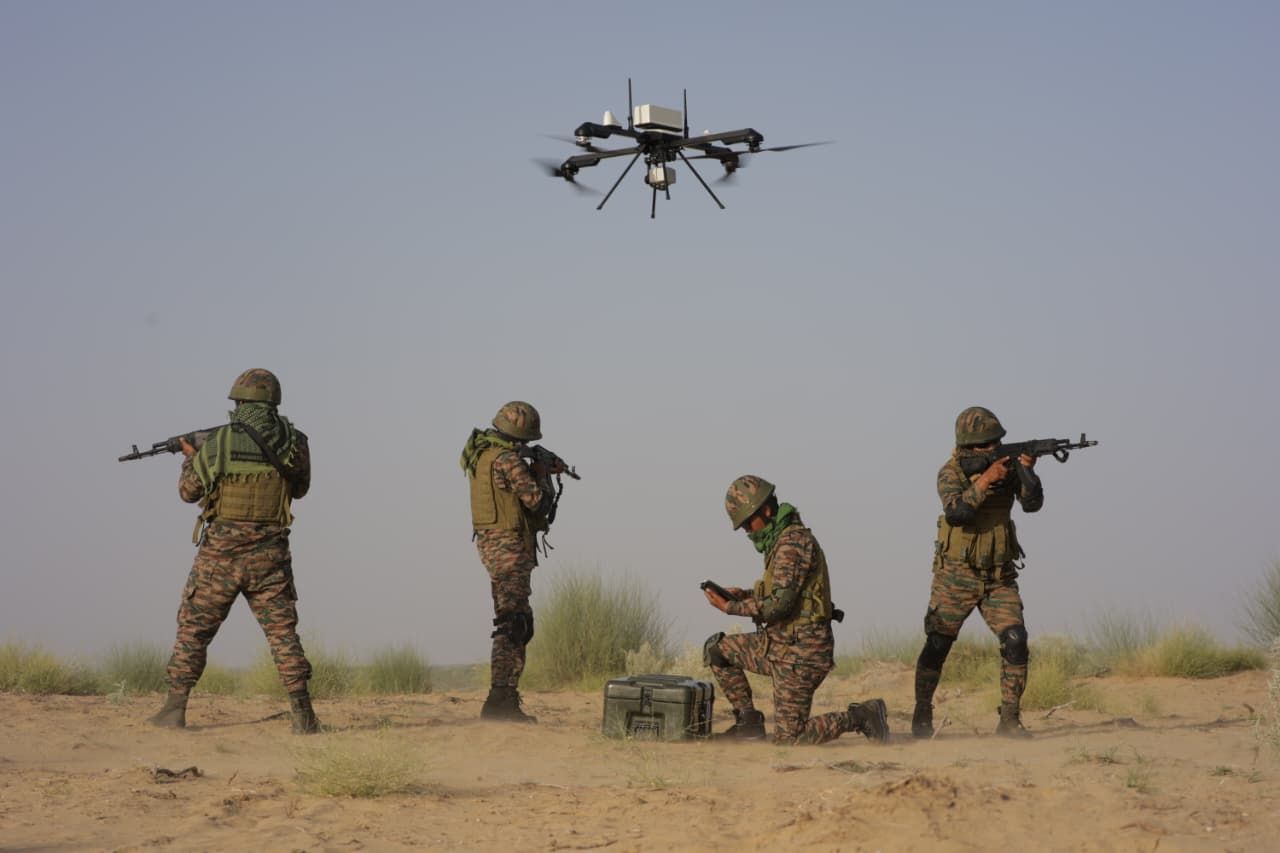INDIAN ARMY CONDUCTS 'VAYU SAMANVAY-II', A MAJOR DRONE AND COUNTER-DRONE EXERCISE IN DESERT SECTOR

IN NEWS: Indian Army Conducts ‘VAYU SAMANVAY-II’, a Major Drone and Counter-Drone Exercise in Desert Sector
ANALYSIS
- Context:
The Indian Army successfully conducted a large-scale Drone and Counter-Drone Exercise named ‘VAYU SAMANVAY-II’ from 28–29 October 2025 in the forward areas of the Desert Sector, under the Southern Command. - Objective:
- To validate the Army’s preparedness for next-generation warfare by integrating aerial and ground assets.
- To test fusion of multi-domain command & control centres in a realistic, electronic warfare, and contested operational environment.
- Key Focus Areas:
- Development and validation of doctrinal concepts for drone and counter-drone operations.
- Strengthening response capability against evolving aerial threats.
- Conduct of experiments with indigenous drone technologies under operational conditions.
- Exercise Highlights:
- Conducted under Southern Command in desert terrain providing ideal conditions for aerial testing.
- Emphasized joint interoperability between various arms of the Indian Army.
- Encouraged coordination and technology-enabled operations in sensitive frontier regions.
- Leadership and Outcomes:
- Lieutenant General Dhiraj Seth, PVSM, AVSM, GOC-in-C Southern Command, commended the success of the exercise.
- The lessons learned will help in capability development and accelerated induction of drone and counter-drone systems.
- Marks a step forward in the Army’s pursuit of modern, multi-domain, technology-driven warfare.
- Significance:
- Reinforces India’s effort toward a technology-driven and agile defence ecosystem.
- Strengthens operational readiness and modernization to counter emerging threats in all domains.
- Aligns with the Army’s vision of being a future-ready force capable of dominating evolving battlespaces.
STATIC PART (RELEVANT FOR UPSC)
- Southern Command Headquarters: Pune, Maharashtra.
- Role of Southern Command: Responsible for operational preparedness and defence of India’s southern and southwestern borders.
- Drone Warfare: Refers to the use of unmanned aerial vehicles (UAVs) for surveillance, combat, logistics, and reconnaissance.
- Counter-Drone Systems: Include technologies like jammers, directed energy weapons, and radar-based detection systems to neutralize or intercept hostile UAVs.
- Electronic Warfare: Military action involving the use of electromagnetic energy to control the spectrum, attack an enemy, or impede enemy assaults.
Updated – 01 Nov 2025 ; 05:35 PM | PIB Mumbai